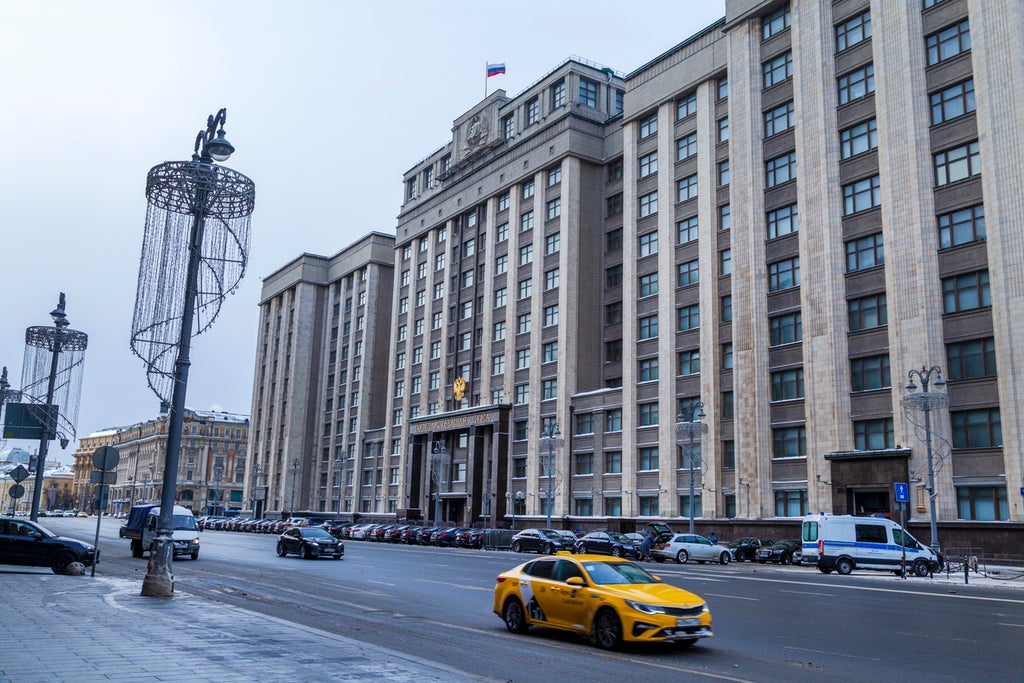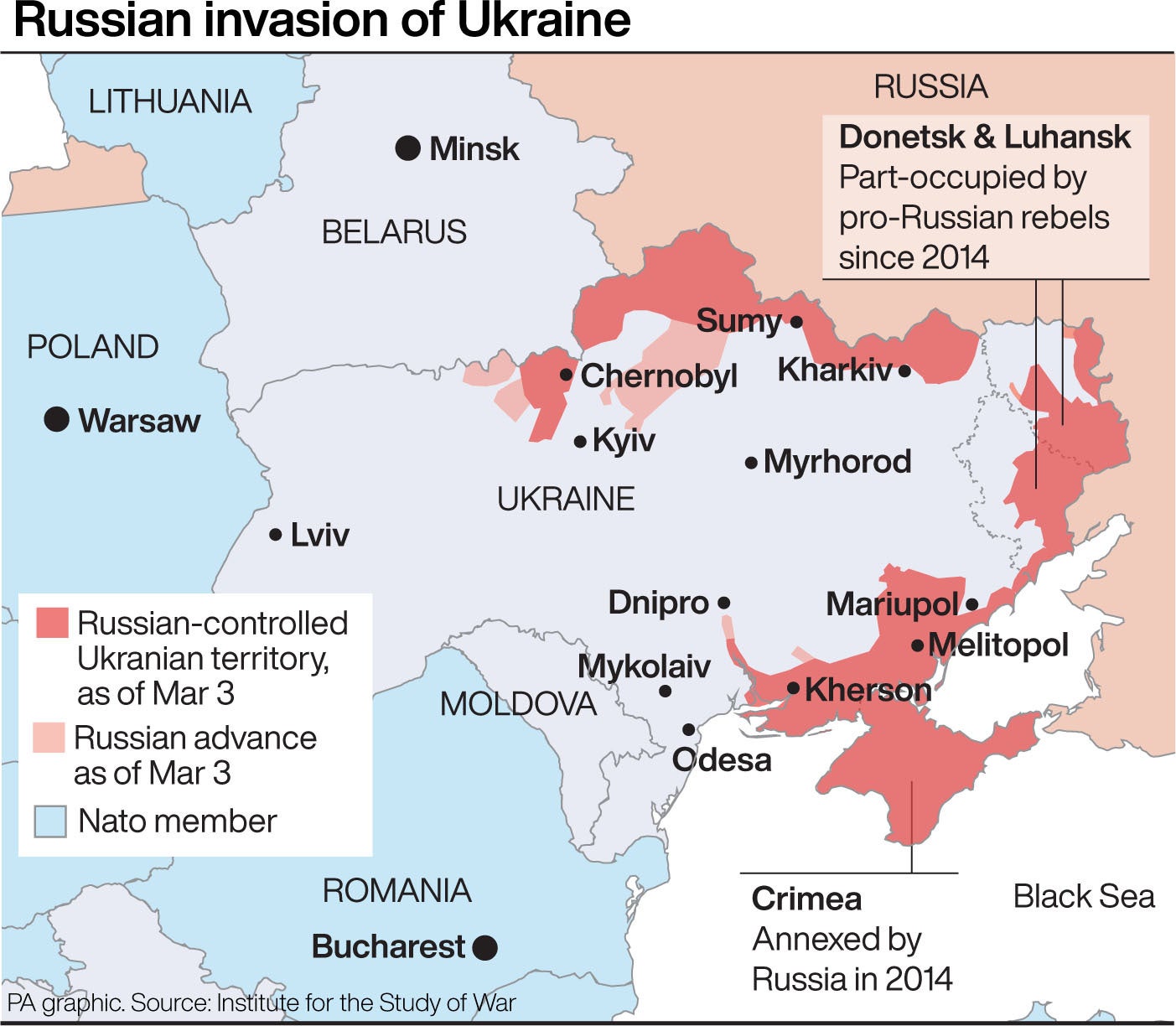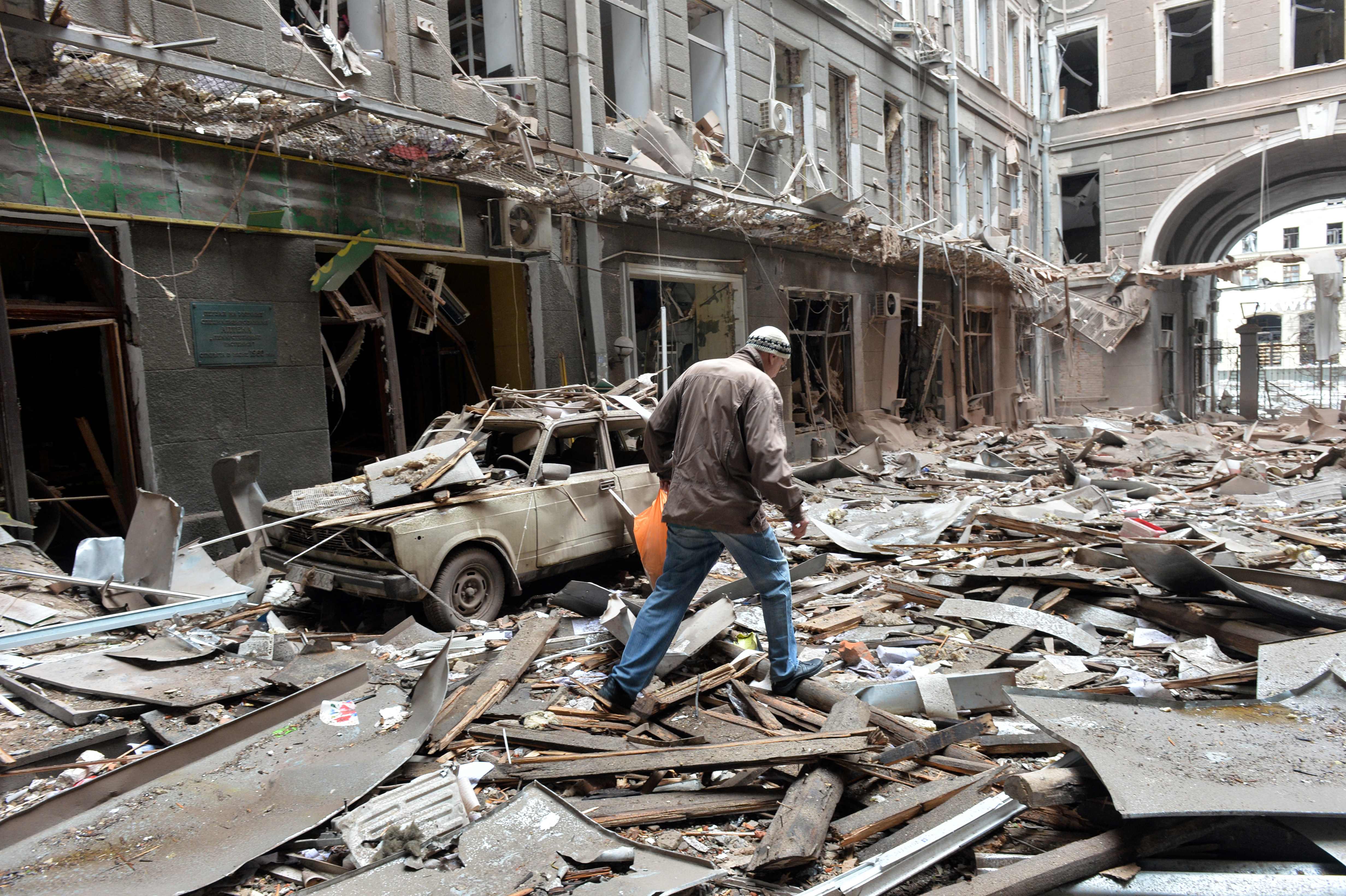
Russia has passed a new law meaning citizens who spread what it described as "fake" information about the military can be jailed for up to 15 years.
It comes as the Kremlin continues to insist that its war with neighbouring Ukraine is a "special operation".
Vladimir Putin, the Russian president, is continuing to crack down on protesters taking to the streets to demonstrate against the conflict, which entered its ninth day on Friday.
Meanwhile, schools and media organisations have been ordered not to describe the invasion as a "war". Several outlets were shut down following negative coverage of the fighting.
Kremlin chiefs have repeatedly claimed that “false” information has been spread by Russia's enemies such as the United States and its allies in an attempt to sow discord and divide its people.
Politicians in the Duma, the Russian parliament, passed the law on Friday. It makes the spread of “fake” information or public calls for sanctions against Russia, criminal offences.

“If the fakes lead to serious consequences then imprisonment of up to 15 years threatens,” the Duma said in a statement.
The law appears to give the Russian state much stronger powers to crack down on what officials consider to be statements that discredit the armed forces.

Earlier this week, Mr Putin ordered the shut down of Russia’s only independent TV channel and a liberal radio station as the president ramped up efforts to censor coverage of the war, leaving citizens with propaganda from state-run outlets as their only source of information.
On Tuesday, the country's media watchdog was ordered to “restrict access” to TV channel Dozhd TV and radio station Ekho Moskvy, after they were accused of spreading “deliberately false information” about Russia’s assault on Ukraine.
The prosecutor general’s office said that the two outlets were spreading “false information regarding the actions of Russian military personnel as part of a special operation” in Ukraine and were sharing “information calling for extremist activity, violence”.
Both websites appeared to have been taken down in Russia soon after the announcement.







